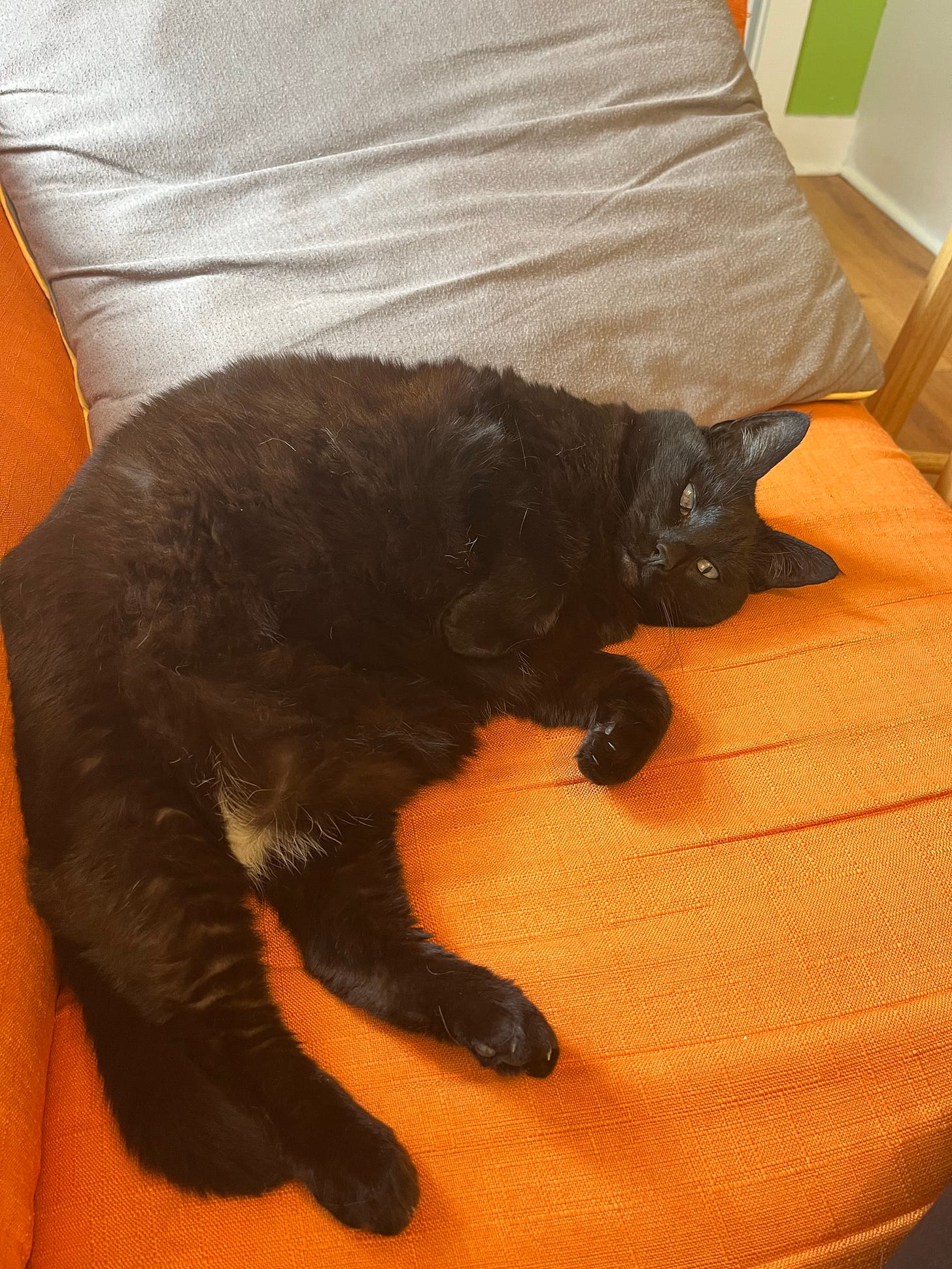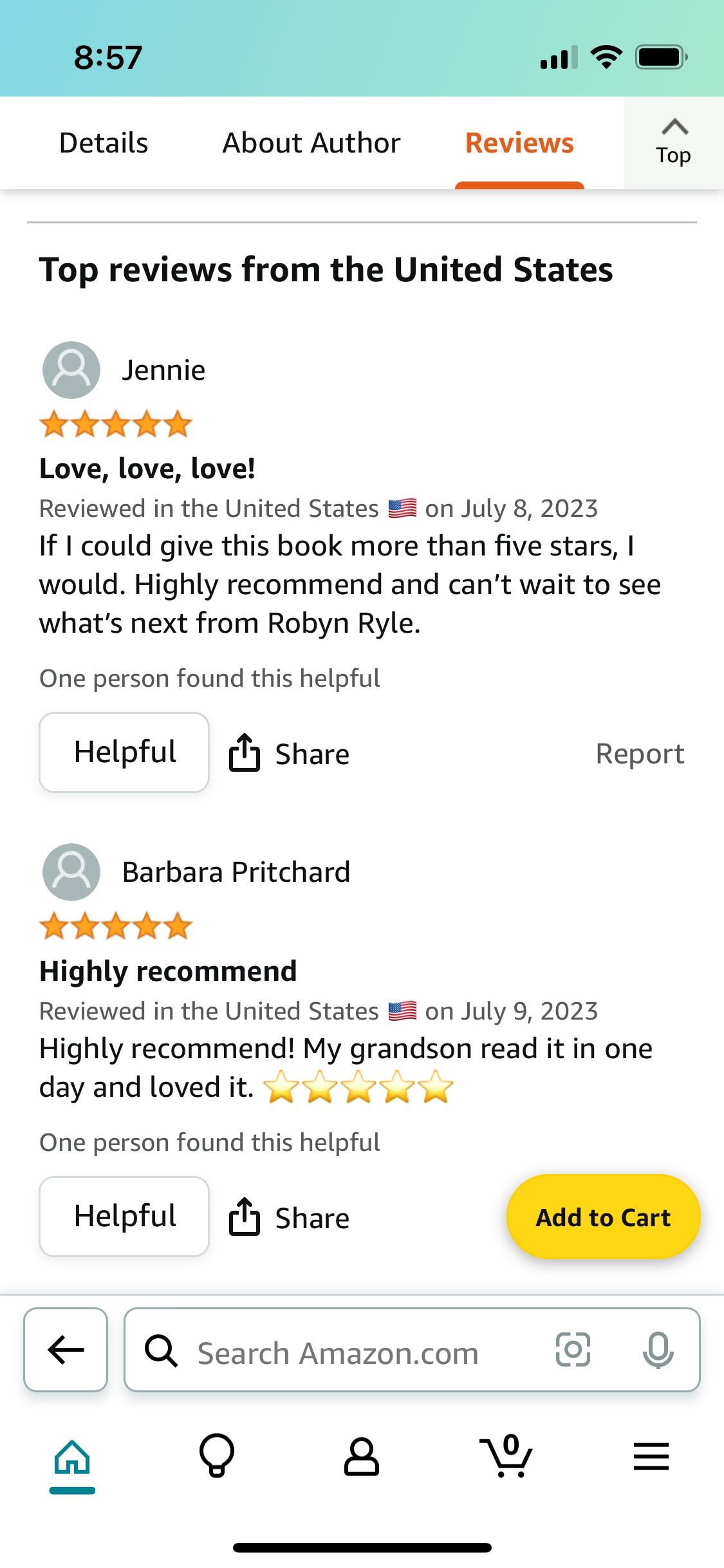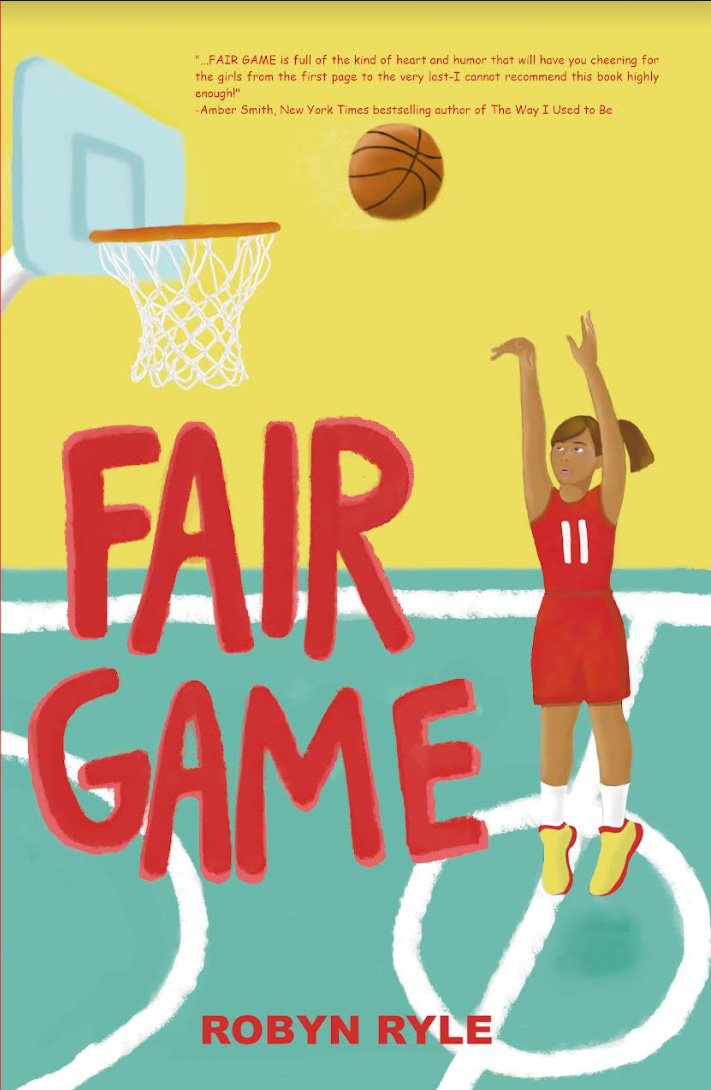The soft underside
Book promotion, vulnerability and asking for help
Here I am, just a girl, standing in front of a bunch of people reading my newsletter, asking them to maybe buy my book, FAIR GAME, about a girls basketball team that challenges the boys to a high stakes game. And maybe leave a review somewhere. Or tell someone you think might be into it about the book. In the words of the great Ted Lasso, I appreciate you.
It is a measure of how important my books are to me that I ask people for help getting them out into the world. Each time I make an IG post about my book or include an ask in this newsletter, a small part of me dies inside. I do not like asking for help. No, that’s not right. Asking for help feels, to me, like failure. Weak people ask for help and weak is the worst thing you can possibly be (or perhaps tied with lazy).

I’m not proud that I feel this way. If you’ve been reading this newsletter for a while, you know I’m a big Brené Brown person. I know better than to believe these things about vulnerability. I tell myself I’ve absorbed these lessons. I’ve watched two seasons of Ted Lasso. I know it’s okay to ask for what I want. I know it’s okay to tell people what I need.
I know it, but I don’t do it. I don’t do it outside of a very small group of people who I trust enough to be vulnerable with. I’m not very good at letting people take care of me. When I realized I could trust my partner enough to show him my soft underside, it was a revelation. I could let him take care of me. He wouldn’t hold it against me later. He wouldn’t turn it against me.
To be fair, there are very specific reasons I never learned to let people take care of me. There are very specific reasons that vulnerability feels so dangerous. That’s what I was taught and that’s what I learned. I’m trying to teach myself something different now.
Resentment, according to Brené Brown, is an emotion that tells us we haven’t made our boundaries clear or we’re not getting something we need. Not surprisingly, I feel a lot of resentment. I feel resentment when I see other people being cared for in ways I’d like to be taken care of. I feel resentment when other people are treated as fragile.
Why are they so special? Why do people go out of their way to help them? I think to myself. Why do they get to be fragile? Fragile is an interesting word. It veers so easily into an insult. It’s such a close kin to weak. No one has ever called me fragile and a lot of times, that feels like a good thing. Women are supposed to be fragile, but I am not.

I am prickly. I am tough. I was talking to a close friend a couple of years ago about my almost constant struggle with anxiety. We’d been friends for years. “You’re not anxious, are you?” she said. Look at how successful I’ve been, I thought. I’d hidden my anxiety away for years. Even the people who knew me best had no idea. Do you have any idea how much effort that takes? To keep that hidden?
“I want to be fragile,” I said to my partner the other day. “I want people to look out for me.”
“So, do it,” he said.
I was making tea. I dunked my bag in the water. “I don’t know how,” I said.
That, too, is a lie. I know how. It’s just too scary. All the prickliest parts of me exist for a reason. They helped me survive. They got me here. I’m grateful to them.
All the prickliest parts of me feel the safest. Toughness feels like virtue. How are you feeling? In my family, the correct answer is always, “Better.” It doesn’t matter how you actually feel. Sick. Desperate. Sad. Angry. Lost. Falling off the end of the world into the void. The answer is always, “Better.” The answer is that you’re moving on. Getting past it. Life is what you make of it, which might be true, but not in the way I was taught to understand it.
“I’m going to start telling people what I need,” I say to my partner. I mean it in the moment. Will I? I have no idea. According to internal family systems, the prickly part of me won’t go away. We can’t banish parts of ourselves. We can only accept them with love and create different voices. I need a voice that tells me it’s okay, like my fat black cat, to let people see my soft belly. It is, after all, my favorite part of my cat. The part that makes me feel the most safe. It’s the part that makes me feel the most bathed in complicated cat love.
Every time I ask people to do something for my book—leave a review, take a picture, order a copy—and they do it, know that somewhere, probably in a room by myself, I am crying a little bit with joy and gratitude. I am holding onto those feelings. I am setting them up like a roadmap in my heart. I am memorizing the feeling of asking and receiving. I am trying so, so hard to feel comfortable in it. To get used to it. I am trying so hard to be okay with it.
Welcome new subscribers and thanks for being here. It’s sort of ironic that my post about not caring about growing on Substack got me so many new subscribers. Reverse psychology works!
It would be so amazing if you could tell someone about FAIR GAME, whatever that looks like for you. Leave a review. Post a pic on social media. Ask your local library to get a copy for their collection. If you’re in or around Madison, Village Lights will have some copies in their store and stay tuned for events coming in August and September.
Check out the Pritchard family killing it with their Amazon reviews! Thanks Jennie and Barb!





Such a beautiful essay today!
Hi Robyn,
I completely understand. I have got better at asking for help over the years. Somewhat. But it's still a bit jangly for me. Especially "selling".
Amanda Palmers book the Art of Asking helped and IFS has helped as well.
As you say it teaches us to love and accept these parts and it also teaches that they *can change their roles* - moving out of self-protection habits the more healed our wounds are - so there is hope! (Dick tells us to be "hope merchants" to our clients).
Anyway - hope you get lots of book sales!